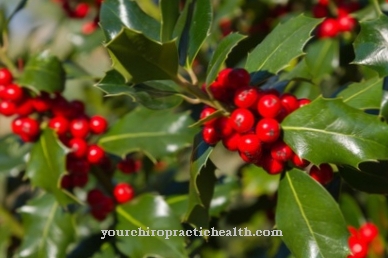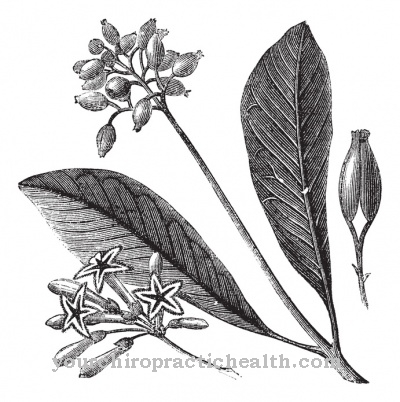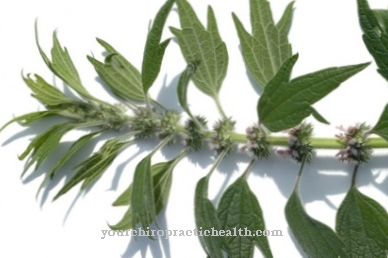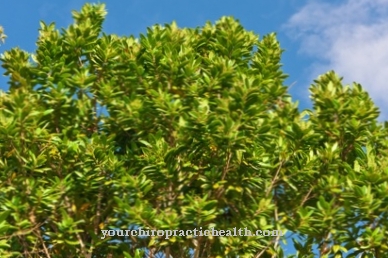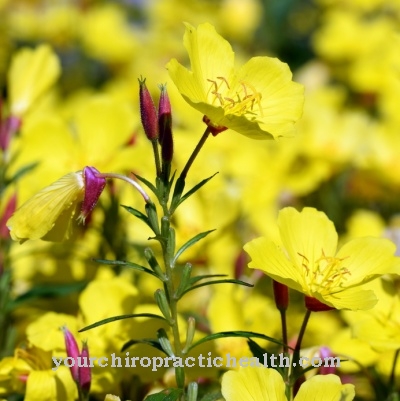This was already true of the indigenous people of the South African Cape region Bucco as an almost universal remedy. The antiseptic and antibiotic effect of its essential oils is still little known to us, but is used in the field of naturopathy. It may surprise some that its flavors are also used by the food industry and are “on everyone's lips”.
Occurrence & cultivation of the Bucco
Of the Bucco shrub (Latin Barosma betulina) belongs to the diamond family and is at home in South Africa. The up to two meters high, heavily branched shrub with purple to orange-red branches occurs exclusively in Capeland, north and northeast of Cape Town. In the 19th century it was brought to Europe and mainly cultivated as an ornamental plant in England.There it bore no seeds and was so difficult to reproduce from cuttings alone that it soon disappeared again. In the period from May to July, the Bucco produces small white or pink flowers, which later develop into brown fruit capsules. Only the bright, light green, leather-like leaves of the plant, on the underside of which are oil glands, are used medicinally. The essential oils it contains give the leaves a strongly spicy aroma that is reminiscent of a mixture of mint and rosemary.
Effect & application
The leaves of the Bucco shrub must first be dried after harvesting and should then be kept in a dry, dark place as airtight as possible for better durability. To obtain the bucco leaf oil, the dried leaves are fed into the steam distillation process. The hot steam serves as a carrier for the organic, volatile components of the plant.
Since these do not mix with the water, the essential oil spontaneously separates from the water when it cools down. In order to obtain a single gram of the valuable oil, you need four kilos of leaves. The anti-inflammatory, diuretic, laxative, digestive and antispasmodic properties of the oil are medically relevant.
Its aromas stimulate the mind and senses, so that it can also be used in fragrance lamps and room humidification systems. The food industry also makes use of the diverse aromas of bucco leaf oil, which are reminiscent of cassis and apple in their fruitiness. It plays an important role in the flavoring of beverages, food and sweets.
Bucco leaves are often added to tea blends because of their aroma. Bucco in the form of tea or drops helps with bladder infections and has a generally positive effect on the kidneys and urinary tract. Two to three cups of the tea should be drunk per day so that the full effect can develop.
For external injuries as well as for the symptomatic treatment of rheumatic complaints, a so-called “Bucco vinegar” or the commercially available ointment is recommended. Homeopathy uses Barosma betulina in the form of globules or as a liquid solution, each in many different potencies.
With its aromas, bucco leaf oil also provides valuable services in cosmetics. It is used in the perfume composition and for Eaux de Cologne as a fresh top note as well as for fougère and chypre fragrances.
Importance for health, treatment & prevention
The indigenous people of South Africa, who have long been contemptuously called "Hottentots" by Europeans, recognized the positive effects of bucco leaves. They traditionally used them primarily as a wound healing agent. At the time of cholera, a so-called cape tincture was used, which also contained bucco leaves. From 1825, people in Germany began using the leaves of the exotic shrub for medicinal purposes.
The Stuttgart druggist Jobst made a significant contribution to this. He published the testimonials of a doctor named Richard Reece, who lived in Cape Country, South Africa and worked there with the agent. The main indication for treatment with Bucco in this country was primarily urinary tract diseases. Bucco works in general with inflammatory processes in the genitourinary system.
In particular, it is prescribed for cystitis, cystitis, gonorrhea (a sexually transmitted bacterial infectious disease, also known as gonorrhea), irritation and inflammation of the urethra, prostate diseases and dropsy. Thanks to its antispasmodic properties, bucco leaf oil can relieve stomach cramps and menstrual cramps.
Applied externally, it helps with neuropathic skin diseases as well as minor wounds and injuries. In the treatment of stomach complaints, the oil harmonizes perfectly with other natural herbs such as hops, lemon balm and St. John's wort. Aromatherapy makes use of the essential bucco leaf oil mainly because of its beneficial effects on the soul.
This is described as generally beneficial, harmonizing and calming. Under the influence of the Bucco fragrance, the inner forces gather so that the patient gains courage and even difficult situations appear to be solvable. The harmony of the psyche is restored, the person affected is again in harmony with himself.
In order to underline the aroma of bucco leaf oil, aromatherapy likes to combine it with citrus scents or spicy notes such as mint and rosemary. Classical homeopathy also works with Bucco preparations. In the drug picture, she first names purulent mucous secretions from the urethra, a chronically inflamed renal pelvis, kidney stones and a chronic, mucous, purulent and painful bladder catarrh.
Persistent urge to urinate, purulent urine gravel, prostate discomfort and vaginal fluoro (vaginal discharge) are also listed. Some of the ingredients in the essential oil can cause adverse reactions in susceptible individuals. Limonene in particular, like its oxidation products, has a high allergenic potential. The pulegon also contained can cause irritation in the digestive tract and on the skin.

